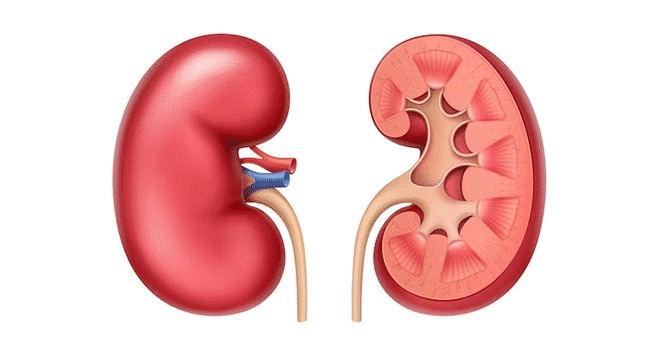A Creatinine Test is a vital diagnostic tool used to evaluate kidney function. Creatinine is a waste product that is produced by muscles during the breakdown of a substance called creatine. The kidneys are responsible for filtering creatinine from the blood and excreting it through urine. Elevated levels of creatinine in the blood can be an indicator of kidney dysfunction, making this test crucial for assessing renal health.
Why is the Creatinine Test Important?
- Kidney Function Assessment: The primary purpose of the creatinine test is to evaluate how well the kidneys are functioning. Elevated creatinine levels can indicate that the kidneys are not filtering waste effectively.
- Early Detection of Kidney Disease: Chronic kidney disease (CKD) can be asymptomatic in its early stages. Regular creatinine testing can help detect kidney issues before symptoms appear, allowing for early intervention.
- Monitoring Kidney Health in At-Risk Individuals: People with diabetes, high blood pressure, or a family history of kidney disease may undergo regular creatinine tests to monitor kidney function.
Types of Creatinine Tests
- Serum Creatinine Test: This is the most common type of creatinine test, where a blood sample is taken to measure the amount of creatinine in the bloodstream.
- Urine Creatinine Test: A 24-hour urine collection is done to measure the amount of creatinine excreted by the kidneys in urine over a full day. This helps in assessing the kidneys’ efficiency in removing creatinine from the blood.
- Creatinine Clearance Test: This test compares the levels of creatinine in the blood and urine to determine the rate at which the kidneys are filtering blood, known as the glomerular filtration rate (GFR).
Normal Creatinine Levels
- Men: 0.6 to 1.2 mg/dL
- Women: 0.5 to 1.1 mg/dL
- Children: 0.3 to 1.0 mg/dL
These values may vary slightly depending on the laboratory, age, and muscle mass. Men typically have higher levels due to greater muscle mass.
Causes of High Creatinine Levels
- Kidney Disease: Elevated creatinine levels are often a sign of chronic kidney disease (CKD), where the kidneys are not filtering waste properly.
- Dehydration: Severe dehydration can cause a temporary spike in creatinine levels as it reduces the kidneys’ ability to filter waste.
- High Protein Diet: Eating a diet rich in protein may temporarily raise creatinine levels due to increased production of waste products.
- Medications: Certain medications, such as nonsteroidal anti-inflammatory drugs (NSAIDs) and some antibiotics, can affect kidney function and elevate creatinine levels.
- Muscle Injury: A sudden increase in muscle breakdown, such as in the case of trauma or intense exercise, can raise creatinine levels.
Symptoms of High Creatinine
Elevated creatinine levels might not cause noticeable symptoms on their own, but they often indicate an underlying kidney problem. Some signs to watch for include:
- Fatigue and Weakness: A common sign of kidney dysfunction.
- Swelling (Edema): Fluid buildup in the body, especially in the legs, ankles, and face.
- Decreased Urine Output: Reduced urination or darker-colored urine may signal kidney issues.
- Shortness of Breath: Due to fluid buildup in the lungs caused by kidney malfunction.
How is the Creatinine Test Performed?
- Serum Test: A healthcare professional draws a small sample of blood, usually from a vein in the arm. The blood is then analyzed for creatinine levels.
- Urine Test: For the urine test, you’ll collect all your urine in a 24-hour period, which is then analyzed for creatinine content.
Preparing for the Test
No special preparation is usually required for a creatinine test, but your doctor may ask you to avoid certain medications or supplements that could affect your results. Hydration levels can also influence creatinine, so it’s advisable to maintain normal fluid intake.
Treatment and Management of High Creatinine Levels
- Treating the Underlying Cause: High creatinine levels are usually the result of an underlying condition like kidney disease, diabetes, or hypertension. Treating these conditions can help bring creatinine levels back to normal.
- Medications: Your doctor may prescribe medications to lower blood pressure, control diabetes, or treat any infections affecting the kidneys.
- Dialysis: In severe cases of kidney failure, dialysis may be required to filter waste from the blood artificially.
- Dietary Changes: Limiting protein, sodium, and potassium intake can help reduce the workload on the kidneys and lower creatinine levels.
Preventing High Creatinine Levels
- Stay Hydrated: Drinking enough water helps the kidneys filter waste more effectively, preventing a rise in creatinine levels.
- Healthy Diet: Eating a balanced diet rich in fruits, vegetables, and whole grains, while limiting excessive protein intake, helps maintain kidney health.
- Monitor Blood Pressure and Blood Sugar: Keeping blood pressure and blood sugar levels in check can help prevent kidney damage, especially in people with hypertension or diabetes.
- Regular Checkups: For individuals with risk factors such as high blood pressure, diabetes, or a family history of kidney disease, regular monitoring of kidney function is essential.
Key Points to Remember
- Essential for Kidney Health: The creatinine test is a simple but crucial tool for assessing how well your kidneys are functioning.
- Early Detection: Regular testing helps detect kidney problems early, often before symptoms arise.
- Multiple Uses: It can be used to diagnose kidney disease, monitor treatment, or assess kidney function in at-risk individuals.
- Simple Procedure: The test involves a simple blood or urine sample and does not require fasting or major preparation.
Conclusion
The Creatinine Test is a critical marker of kidney function, providing essential insights into your renal health. Whether you’re managing a chronic condition like diabetes or simply want to assess how well your kidneys are functioning, regular creatinine testing can help detect issues early and guide effective treatment. By staying proactive with your health, you can take the necessary steps to maintain optimal kidney function and overall well-being.



